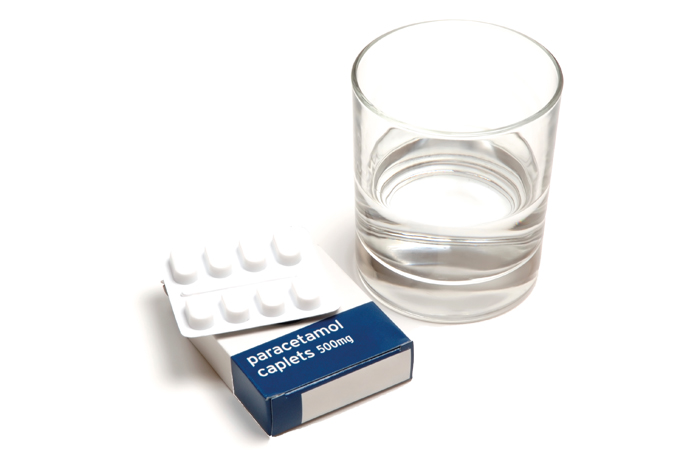
- Simple analgesics such as paracetamol or ibuprofen may be used for headache, myalgia or fever, bearing in mind any contraindications or cautions. Ibuprofen has a slightly longer duration of action.
If symptoms of pain or fever are particularly severe, ibuprofen and paracetamol may be used concomitantly, as there is some evidence of increased effectiveness according to a 2013 Cochrane review. There is little evidence about alternating these products and doing so may cause confusion. Aspirin is no longer recommended as it is less well tolerated.
- Some people find steam inhalation comforting in loosening mucus and relieving congestion. A 2017 Cochrane review concluded there was no consistent evidence that this intervention worked. There are potential dangers, particularly for young children, and boiling water should never be used.
Sitting in a steamy bathroom with the shower running hot may be a safer option. The BNF states that adding aromatic compounds such as menthol or eucalyptus oil may help although there is little evidence in the literature of additional efficacy. The same is also true of vapour rubs containing similar ingredients.
- Saline nose drops or sprays can help liquefy mucus secretions, so are another option for nasal congestion. In infants they may help with feeding but some babies do not tolerate them. A 2015 Cochrane review found that in adults and children, saline nasal irrigation was safe, although sometimes associated with minor discomfort and with only limited evidence of benefit.
- Antihistamines are included in some cold and flu remedies, with the theory being that they help dry nasal secretions. A 2012 Cochrane review found that sedating antihistamines combined with a decongestant were effective, probably due to their anticholinergic properties, but side-effects such as drowsiness, dry mouth, insomnia and dizziness are problematic, and there was no evidence of benefit in young children. There is no support for non-sedating antihistamines for either a cold or flu.
